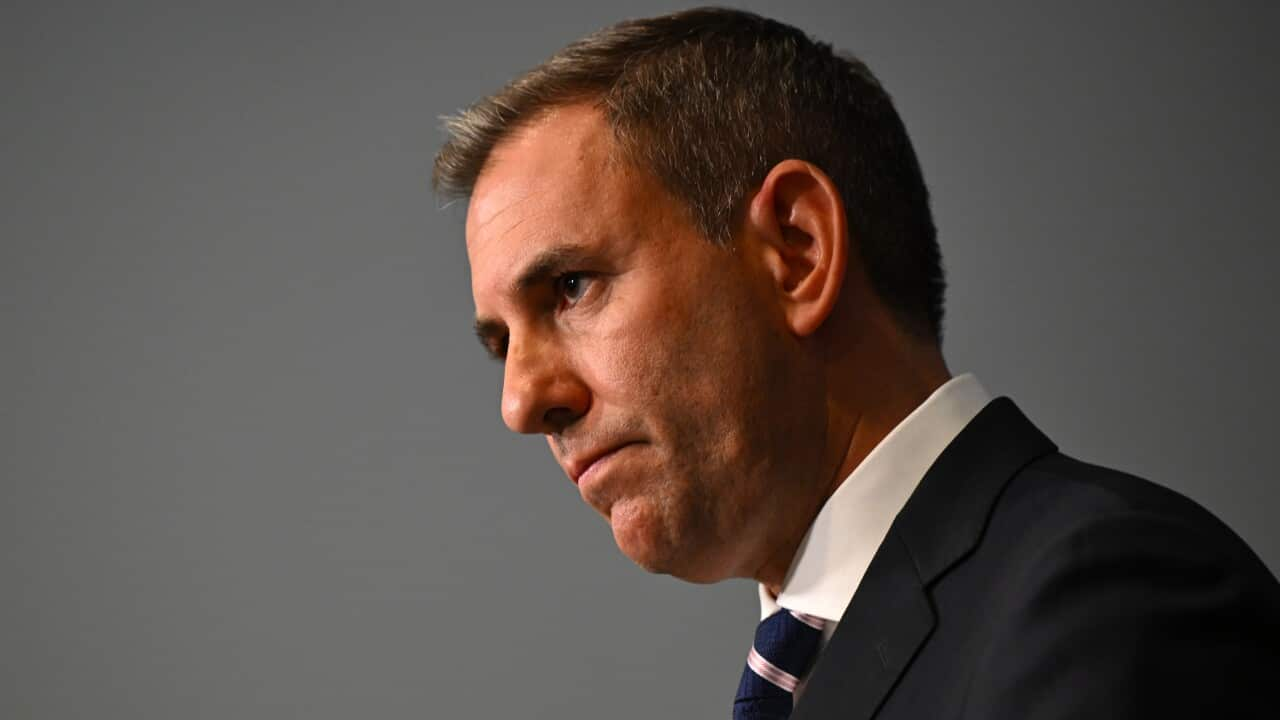In a major economic address, Treasurer Jim Chalmers said Australia needs to focus on resilience instead of retaliation in the face of the Trump administration's tariffs.
Tariffs of 25 per cent on steel and aluminium exports took effect last week following Australia's failure to secure an exemption, amid concerns other industries could be caught in the crosshairs and that the move could escalate into a global trade war.
Chalmers delivered his major economic speech in Brisbane on Tuesday, one week ahead of the federal budget.
A time of 'serious volatility'
"This is a time of serious volatility in a global economy which is increasingly uncertain and unpredictable," Chalmers said.
He cited the new United States administration disrupting trade, a slowdown in China, a war in eastern Europe and a fragile ceasefire in the Middle East, as well as "political division and dissatisfaction around the world".
"We've seen extreme market volatility in the US and elsewhere as a consequence," he said.
Global growth over the next three years is expected to be its weakest since the 1990s as trade barriers, like the tariffs on steel and aluminium, pull the handbrake on growth.
While tariffs will directly impact Australian gross domestic product (GDP) by less than 0.02 per cent by 2030, the indirect consequences could result in a 0.1 per cent hit to GDP by the end of the decade, according to Treasury estimates.
Decision to tariff Australia 'senseless and wrong'
Chalmers took aim at US President Donald Trump's decision not to exempt Australia from tariffs on steel and aluminium.
"The decision not to exempt Australia from American tariffs on steel and aluminium was disappointing, unnecessary, senseless and wrong, as the PM rightly pointed out," he said.
He said the "whole world has changed" and that this had been accelerating since inauguration day, adding that the rules that "underpinned global economic engagement for more than 40 years are being rewritten".
"Tariffs and escalating trade tensions are a form of economic self-harm. They are self-defeating, and self-sabotaging," Chalmers said.
Chalmers added that these trade restrictions will lead to less growth and more inflation and will impact multiple industries and quarters.
Chalmers urges resilience, not retaliation
Chalmers warned of economic turmoil following the tariffs but emphasised Australians would be resilient.
"We are not uniquely disadvantaged by these tariffs, but we deserve better as a long-term partner and ally," he said.
"In a world of retaliation and escalation, the impacts of tariffs are amplified, they linger for longer.
"Our response to this will not be a race to the bottom on tariffs. We'll go for more resilience, not more retaliation."
Australia has already spoken to other nations affected by the tariffs in a bid to diversify and expand trading relationships.
Prime Minister Anthony Albanese has also urged Australians to "buy local", with Trade Minister Don Farrell saying he was continuing negotiations for Australian tariff exemptions.
Opposition leader Peter Dutton has labelled Albanese as "weak" and said he could "get a deal done with the Trump administration" should he be elected.
The speech comes after the Organisation for Economic Co-Operation and Development (OECD) — an intergovernmental organisation consisting of 38 member countries, including Australia — released their latest assessment of the global economy on Monday.
OECD economists lowered their estimates for Australia's real GDP growth from 2.5 per cent in 2026 to 1.8 per cent, well below the Reserve Bank's forecast of 2.3 per cent.
The report also warned tariff hikes and rising protectionism could push consumer prices higher and increase inflation, leaving central banks with little choice but to keep interest rates higher for longer than previously expected.
— With additional reporting by the Australian Associated Press

